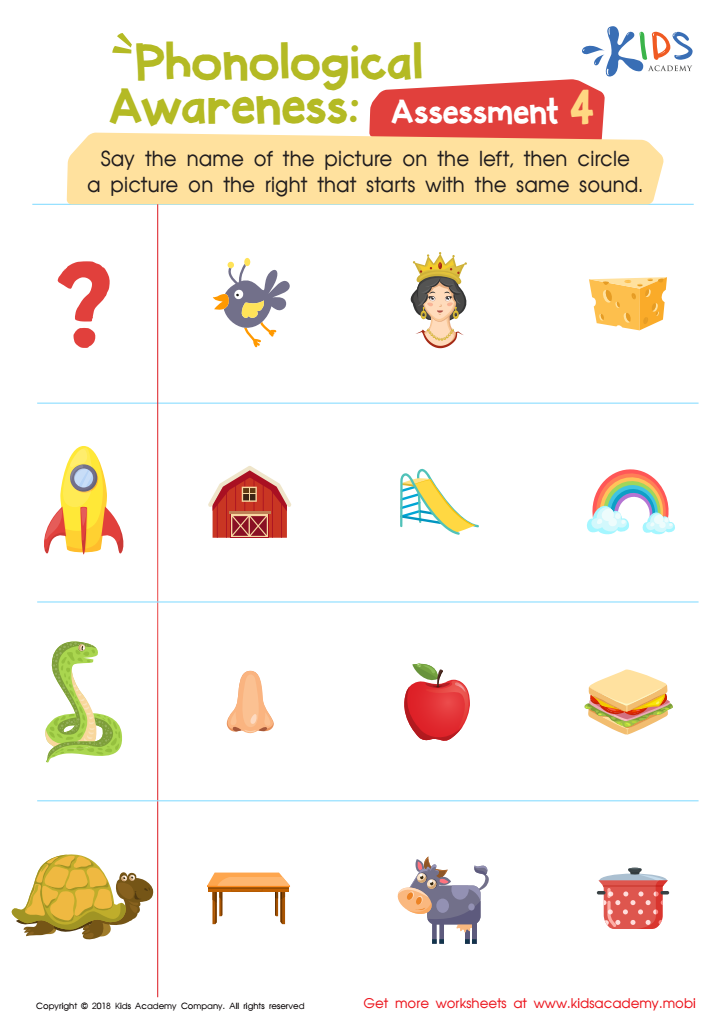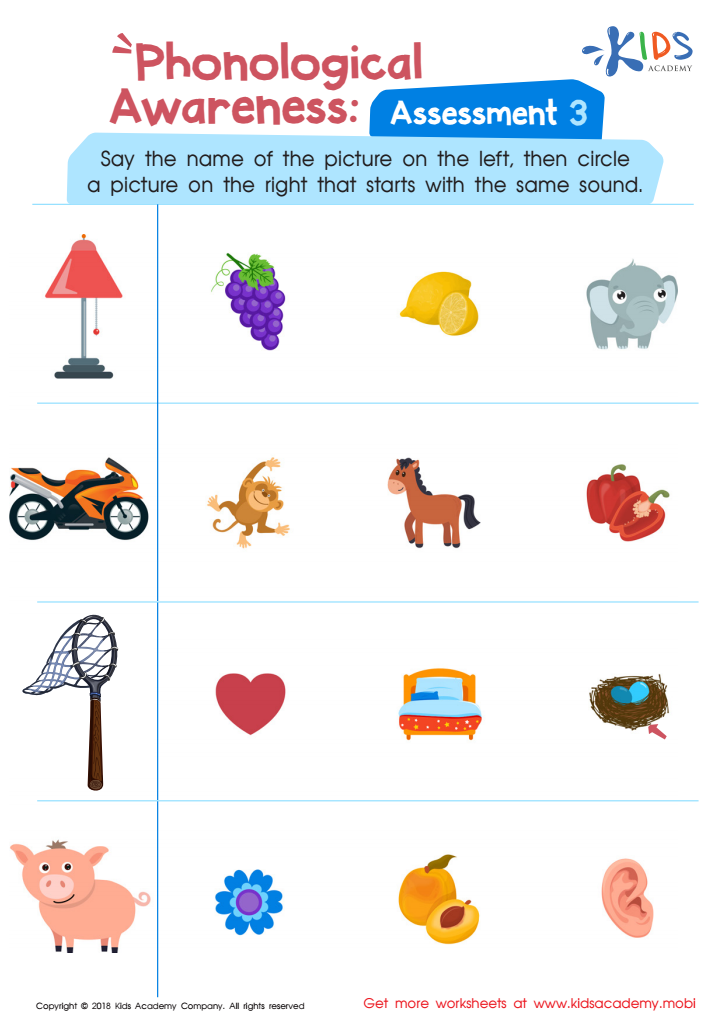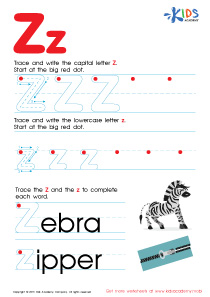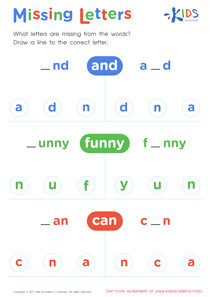Listening skills Extra Challenge Phonics Worksheets for Ages 3-4
3 filtered results
-
From - To
Enhance your child’s listening skills with our Extra Challenge Phonics Worksheets, designed specifically for ages 3-4! These engaging activities are perfect for early learners, helping them to develop essential phonetic awareness through auditory exercises. Our worksheets feature interactive tasks that promote critical listening, enabling children to identify sounds, recognize patterns, and improve their phonemic understanding. These challenges not only make learning fun but also foster vital language skills that lay the foundation for reading and communication. Bring a new level of excitement to your child's learning journey with these thoughtfully crafted worksheets curated by education experts!


Baa Baa Black Sheep Printable


Phonological Awareness: Assessment 4 Worksheet


Phonological Awareness: Assessment 3 Worksheet
Listening skills are foundational for children's early development and learning, especially in the context of phonics for ages 3-4. At this stage, children are not only acquiring language but are also learning to recognize sounds, which is crucial for their reading and literacy skills. Effective listening abilities enable them to distinguish between different phonemes, understand words, and follow directions. This early exposure to phonics through listening activities lays a solid groundwork for future reading proficiency.
Parents and teachers should emphasize the importance of Listening skills Extra Challenge Phonics because it fosters interactive learning and cognitive development. Engaging children in phonics games and activities that require active listening helps improve their focus, comprehension, and retention. These skills are vital for success not only in literacy but also in overall academic performance. Moreover, strong listening skills enhance a child's social interactions, facilitating better communication and collaborative play.
Investing time in developing listening and phonics skills enriches a child’s language experience, supporting their emotional and intellectual growth. It empowers children to become confident learners, paving the way for a lifelong love of reading and learning. Therefore, nurturing these skills should be a priority for parents and teachers alike.

 Assign to My Students
Assign to My Students



















